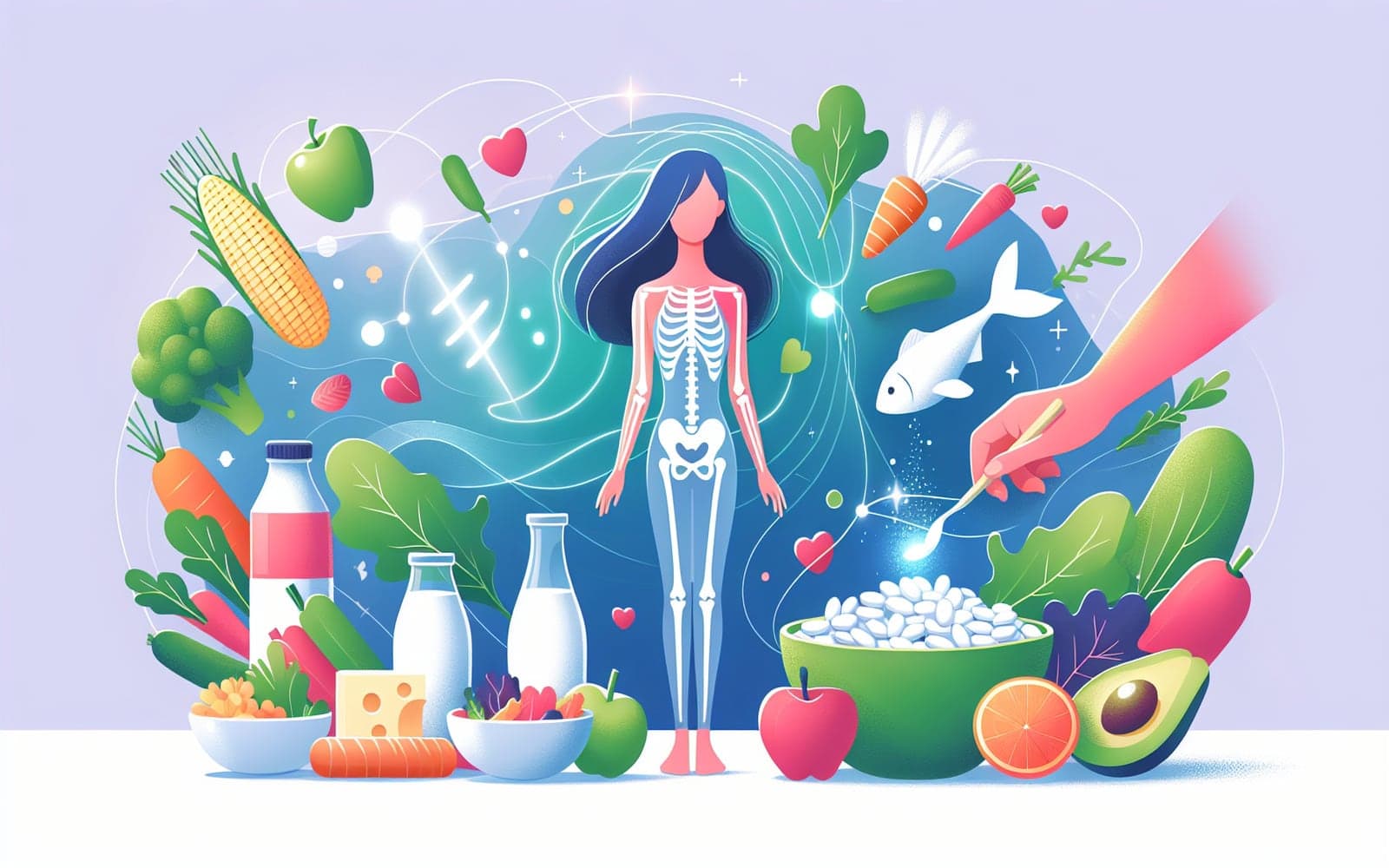Can Your Diet Really Boost Your Bone Health?
Published: Apr 05, 2024
Discover how your diet can make or break your bone health, especially for postmenopausal women. This article explores dietary changes to help prevent osteoporosis.
Contents
The Role of Calcium and Vitamin D
Calcium and vitamin D are crucial for maintaining strong bones. Postmenopausal women should aim for 1200 mg of calcium daily through diet or supplements and 800 international units of vitamin D. These nutrients help in bone mineralization, reducing the risk of fractures.
Protein Intake: Friend or Foe?
While protein is essential for overall health, its role in bone health is debated. Some studies suggest high protein intake may reduce fracture risks, while others indicate it could increase bone loss. Aim for a balanced intake to support bone density without overloading.

Special Dietary Needs
Certain conditions like celiac disease affect bone health. A gluten-free diet can improve bone density in those with celiac disease. Tailor your diet to meet specific health needs and enhance bone health.
Frequently Asked Questions
Calcium and vitamin D are essential for strong bones.
They should aim for 1200 mg of calcium per day.
Yes, balanced protein intake can support bone density.
It can improve bone density in those with celiac disease.
Key Takeaways
Could a few dietary tweaks be the secret to stronger bones?
Talk to Doctronic about tailoring a diet plan to boost your bone health!Related Articles
References
Rosen CJ. Clinical practice. Postmenopausal osteoporosis. N Engl J Med 2005; 353:595.
Zittermann A, Schmidt A, Haardt J, et al. Protein intake and bone health: an umbrella review of systematic reviews for the evidence-based guideline of the German Nutrition Society. Osteoporos Int 2023; 34:1335.
Always discuss health information with your healthcare provider.

